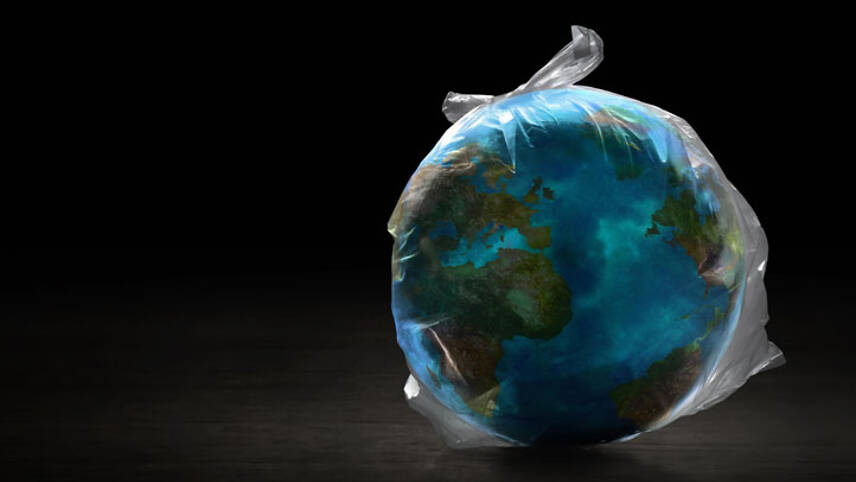Register for free and continue reading
Join our growing army of changemakers and get unlimited access to our premium content

Nearly 200 fossil fuel and chemical industry lobbyists registered for the negotiations during the fourth session.
The Global Plastics Treaty aims to reduce the absolute level of plastics production globally, with a focus on the materials that pose the most risk to the environment and public health, while requiring nations to improve waste management.
The first full draft of the treaty was finalised in September of last year, which was further negotiated in November at the INC-3 discussions held in Kenya, where a small group of nations rowed over the specific wording on operationalising the treaty and stalled progress due to their strong petrochemical interests.
Today (30 April), the fourth session of the intergovernmental negotiating committee (INC-4) to advance a global plastics treaty ended, and while nations finally began negotiating the exact text line-by-line in the last few days, they failed to narrow and nail down the final text.
The discussions focused on all the key parts of treaty including the problematic and avoidable plastics, chemicals of concern, primary plastic polymers, product design, composition and performance, as well as extended producer responsibility (EPR) and global rules.
While states had differing opinions on nearly all these key points, nearly all the states agreed on the importance of a consistent global EPR system as well as a need for global rules.
Centre for International Environmental Law (CIEL)’s director of environmental health David Azoulay said: “We saw many countries rightly assert that it is important for the treaty to address production of primary plastic polymers.
“But when the time came to go beyond issuing empty declarations and fight for work to support the development of an effective intersessional programme, we saw the same developed Member States who claim to be leading the world towards a world free from plastic pollution, abandon all pretence as soon as the biggest polluters look sideways at them.”
Petrochemical interests stall progress…again
According to a recent analysis, nearly 200 fossil fuel and chemical industry lobbyists registered for the negotiations during the fourth session, including approximately 16 on country delegations.
The US, one of the biggest producers of oil and gas, signalled to the G7 that it would commit to reduce plastic production, but did not deliver on it at the talks. The nation’s proposals lacked binding targets and focused on cutting demand for plastic rather than production itself.
CIEL’s senior attorney Melissa Blue Sky said: “We need to know if Member States have the political courage to say, ‘enough is enough’ and secure majority voting, or will they continue to let obstructionist countries grind the process to a halt by threatening veto power?”
Looking forward, the countries have agreed on a plan for formal intersessional work ahead of the final negotiation (INC-5) round in Busan, Korea in November this year. The intersessional discussions will focus on means of the treaty’s implementation, chemicals and products of concerns, as well as product design.
However, it bears noting that these sessions do not include textual negotiations, underscoring concerns regarding their effectiveness in finalising a treaty by the end of the year, which was initially the aim.
While some groups have called this session a “compromise”, others have called it “incremental progress” with more work now needed to be done. Here, edie summarises the reaction.
Green groups reaction
Erin Simon, vice president and head of plastic waste and business, WWF:
“The pressure was on at INC-4 for countries to make up for lost time. With the world watching, negotiators made incremental progress by including some of the key ingredients needed for a successful treaty.
“More work must be done between now and the final round of negotiations if we’re going to deliver an effective and legally-binding treaty that people and the planet deserve.”
Graham Forbes, global plastics campaign lead, Greenpeace US:
“The world is burning, and member states are wasting time and opportunity. We saw some progress, aided by the continued efforts of states such as Rwanda, Peru, and the signatories of the Bridge to Busan declaration in pushing to reduce plastic production.
“However, compromises were made on the outcome which disregarded plastic production cuts, further distancing us from reaching a treaty that science requires and justice demands.
“The entire world is watching, and if countries, particularly in the so-called ‘High Ambition Coalition’, don’t act between now and INC-5 in Busan, the treaty they are likely to get is one that could have been written by ExxonMobil and their acolytes.”
Julie Teel Simmonds, a senior attorney, Centre for Biological Diversity:
“Countries should be rallying around plastic production cuts at this critical stage, not continuing to wrangle over the treaty’s scope.
“Despite hearing people from polluted communities around the world give sensible proposals to curb the lifecycle harms of plastics, fossil fuel and petrochemical interests are still shamelessly blocking progress and focusing on utterly inadequate plastic waste management.”
Delphine Lévi Alvarès, global petrochemical campaign coordinator, CIEL:
“We are in the presence of an industry with a well-known playbook for jeopardising the ambition of environmental and social negotiations.
“We must take steps to kick polluters out by adopting a strong conflict of interest policy.”


Please login or Register to leave a comment.